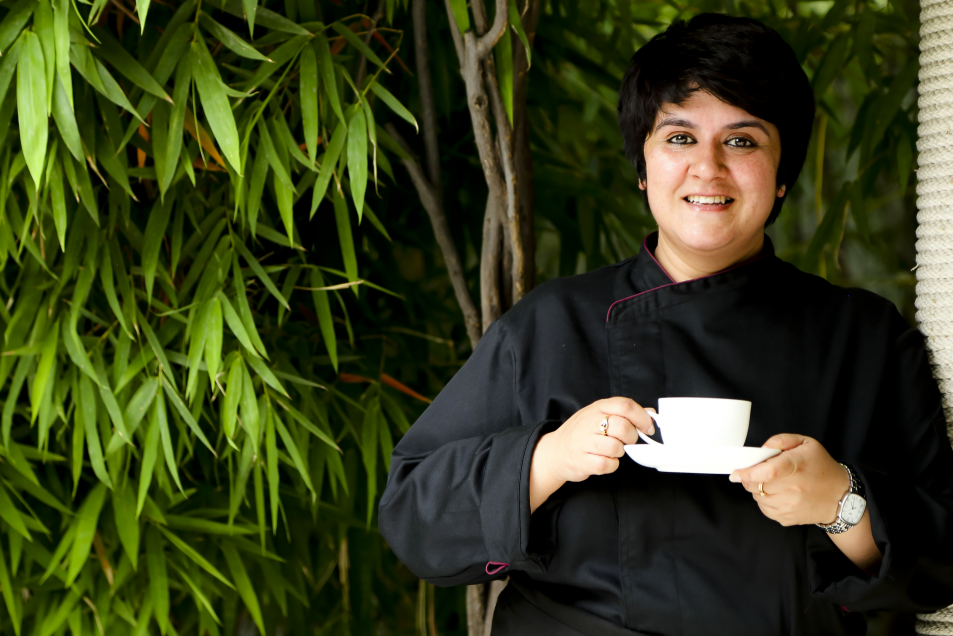A frugal lifestyle is often confused with a life that sacrifices on quality. This is because the term frugal is, more often than not, misconstrued as a negative one. If done the right way, choosing to be frugal can actually add more value to your life. Do you agree?
The art of frugal living
A lifestyle where you are very intentional with your spending is a frugal lifestyle. It is about prioritizing your money on things that truly matter, and cutting out all the frills that don’t. If you choose to only look at the sacrifices you make, it is bound to get difficult to stay on this path. However, if you look on the bright side, these sacrifices add to larger benefits down the road.
Why is frugal living a great idea?
The benefits that come with choosing a frugal lifestyle are multifold.
- It puts you on the path to financial freedom by accelerating how quickly you achieve your personal financial goals.
- It allows for a cause-and-effect reality to take hold in terms of finances.
- You get to decide where you spend your hard-earned money.
How does one live a frugal lifestyle?
If you’ve tried to lead a frugal lifestyle over the years but have fallen off the wagon, it’s okay. If you are new to this life, then it may seem difficult at first. That is also okay. We’ve been there. We are all for that frugal lifestyle, and over the years we have found tips and tricks that really lower expenses and help us save a lot of money.
We’ve put together some of our favorite tips for you to save money while living your best life. When we say this, we understand that a frugal lifestyle means different things to different people. We just want to help you live a life that aligns with your goals.
- Start budgeting your finances
Your first tool towards a frugal lifestyle and your financial success is creating and sticking to a budget. It helps you prioritize things that are important and cut out the ones that are not. There are many tools available to help you plan your budget. You can start by maintaining either a weekly or monthly budget, whatever works for you.
- Take stock of your pantry
If you ever walk into your pantry and take stock of the food available, you’ll be surprised. In today’s digital world, ordering food at the click of a button has spoiled us rotten. Instead, get into the habit of making meals at home with what is available. The fact that it is healthier than take-out food is an added bonus. Of course, you can indulge in food from your restaurant; you just don’t need to do it four times a week.
- Sell the things you don’t need
If you look around, there’ll be five things in your direct line of vision that you can do without. Set a day aside, look around the house and put aside things that you have outgrown. With a little bit of effort, this clutter can be cashed through different platforms such as Facebook and eBay, to name a few.
- Start thrifting
Local thrift stores and online marketplaces can really surprise you with the things on sale and the prices they are available at! Apart from saving up tons of money, you’ll also be saving the planet. A win-win situation, we say.
- Upcycle your wardrobe
Have you ever considered shopping in your closet? Yes, it’s true. If you look into the deep corners of your closet, you’ll unearth clothes and shoes that are begging for your attention. Sew some patchwork on that jacket or cut your denim and turn them into shorts. You can be fashionable, even on a budget!
- Walk or bike whenever you can
We’re all guilty of taking the car to the nearby grocery shop that is within walking distance. Next time, ditch the car and walk instead. Not only will you save on a lot of petrol money, you’ll also end up burning some calories in the process.
- Workout at home
A membership at a good gym can really burn a hole in your pocket. Instead, join an online workout class that is relatively cheaper and also lets you work out at ease. Or you can ditch a membership altogether and pull out a video from YouTube instead.
- Automate your savings and investments
It is easy to fall into the habit of overspending when your savings and investments are not automated. Get a financial advisor on board and figure out places where you can invest in and automate them. Also, go through your expenses and set up automatic payments wherever possible.
- Evaluate your subscriptions
Do you really need subscriptions to six OTT platforms? You’ll be surprised at the amount you pay on an annual basis just to watch one movie from that one platform. Keep the ones that are worth keeping and cancel the rest.
- Get a side gig
The gig economy is booming in the country and all over the world. Pick up a part-time job near your house or even one that requires you to work from home. There are tons of exciting options available.
- Shop in bulk
You’ll be surprised at the amount you save when you buy certain things like toilet paper, soap, paper napkins, among others, in bulk. The price per unit is low when you purchase large quantities. Make a list of items that you use daily, and next time you go grocery shopping, buy them in bulk and keep them.
- Plan your travels better
Travelling does not have to be an expensive affair if you plan it well. Try to plan your travels during the ‘off-season’ as everything is relatively cheaper. Ditch the expensive hotels and opt for a beautiful Airbnb instead. Also, avoid the tourist traps and eat where the locals eat, instead. Not only will you save up on cash, but you’ll also get to eat some of the best food!
- Make gifts instead of buying
There is a certain emotion associated with gifts that are handmade instead of store-bought. Gifting during the holiday season can be expensive. You can check out videos on YouTube for some great gift making ideas!
- Grow your vegetables
If you are blessed to have a small open patch in your house where you can grow a vegetable garden, do it! Apart from being fun and inexpensive, there is also a sense of great satisfaction associated with it.
- Ditch the expensive coffee
We’ve all been there and done that. Try ditching that expensive cup from Starbucks and instead start brewing your coffee at home. There are some top-notch home-grown brands that source the best coffee from all over the country. Your wallet and taste buds will thank you.
As you can see from the tips above, a frugal lifestyle does not ask you to give up your favorite cereal brand or stay at home instead of going on a vacation. Also, don’t cut back on too many things too fast, as it is bound to backfire. It all comes down to the strategy and approach you choose for yourself. If you get addicted to this lifestyle, we completely and happily accept all the blame!




 However, she also highlights a few things that one should be cautious of while starting out on your own. She emphasizes that once you’ve established clearly what you want to do, which direction you want to take and who you want to partner with, it’s possible that somewhere along this journey you get influenced wrongly and get deviated from your core values that your brand talks about. This may all be in an attempt to reach your goals faster and in ways that might bring in the limelight quicker than expected. She mentions that it is absolutely crucial to keep going back to the drawing board and figure out where you started and how you started. She states, “Stick to the values and principles, choose your clients wisely. Be careful of how you put across your brand on social media. The world is watching. And if you are an entrepreneur, remember you reflect your brand and vice versa. Hence, with the powerful tool that the social media is, remember to keep yourself linked to the brand and see how you can reflect the best rather than give any negative impact to what you are trying so hard to build.”. Anamika personally has a checklist that she goes back to off and on. Additionally, she maintains a daily diary of her expenses and has a personal CA who helps her with her investments and to keep a reality check on her personal finances as well as that of the business.
However, she also highlights a few things that one should be cautious of while starting out on your own. She emphasizes that once you’ve established clearly what you want to do, which direction you want to take and who you want to partner with, it’s possible that somewhere along this journey you get influenced wrongly and get deviated from your core values that your brand talks about. This may all be in an attempt to reach your goals faster and in ways that might bring in the limelight quicker than expected. She mentions that it is absolutely crucial to keep going back to the drawing board and figure out where you started and how you started. She states, “Stick to the values and principles, choose your clients wisely. Be careful of how you put across your brand on social media. The world is watching. And if you are an entrepreneur, remember you reflect your brand and vice versa. Hence, with the powerful tool that the social media is, remember to keep yourself linked to the brand and see how you can reflect the best rather than give any negative impact to what you are trying so hard to build.”. Anamika personally has a checklist that she goes back to off and on. Additionally, she maintains a daily diary of her expenses and has a personal CA who helps her with her investments and to keep a reality check on her personal finances as well as that of the business. This one is not to be confused with the famous girl band from the 90s. Singapore-based Namita Moolani Mehra is a mom of two and is the founder of
This one is not to be confused with the famous girl band from the 90s. Singapore-based Namita Moolani Mehra is a mom of two and is the founder of  Namita’s drive to make a difference was her main inspiration to become an entrepreneur. She wanted to give back and do something with meaning and purpose. Therefore, by creating something of her own that would be purpose-driven and make her feel excited about getting out of bed, she wanted to put her strengths in service of something meaningful. After working at one of the world’s best companies (Facebook) with the most incredibly talented people, and supported by tremendous resources, she was afraid of going off on her own. She was worried about not having the teams and resources to keep her motivated and productive.
Namita’s drive to make a difference was her main inspiration to become an entrepreneur. She wanted to give back and do something with meaning and purpose. Therefore, by creating something of her own that would be purpose-driven and make her feel excited about getting out of bed, she wanted to put her strengths in service of something meaningful. After working at one of the world’s best companies (Facebook) with the most incredibly talented people, and supported by tremendous resources, she was afraid of going off on her own. She was worried about not having the teams and resources to keep her motivated and productive.